The World Economic Forum just dropped their Future of Jobs Report 2025, and it’s packed with insights about where the world of work is headed. Spoiler alert: change is coming fast, but there’s a lot to be excited about. Here’s the lowdown:
1. Tech is Reshaping Jobs (and Fast)
- 92 million jobs could be displaced by 2030. Roles in data entry, and administrative support are most at risk.
- But here’s the good news: 170 million new roles are expected to emerge due to structural labor market transformation, resulting in a net gain of 78 million jobs.
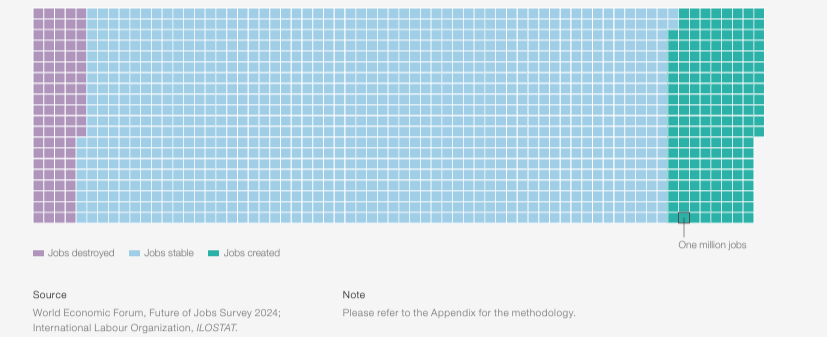
- High-demand roles include big data specialists, fintech engineers, AI and machine learning experts, software and application developers, among others.
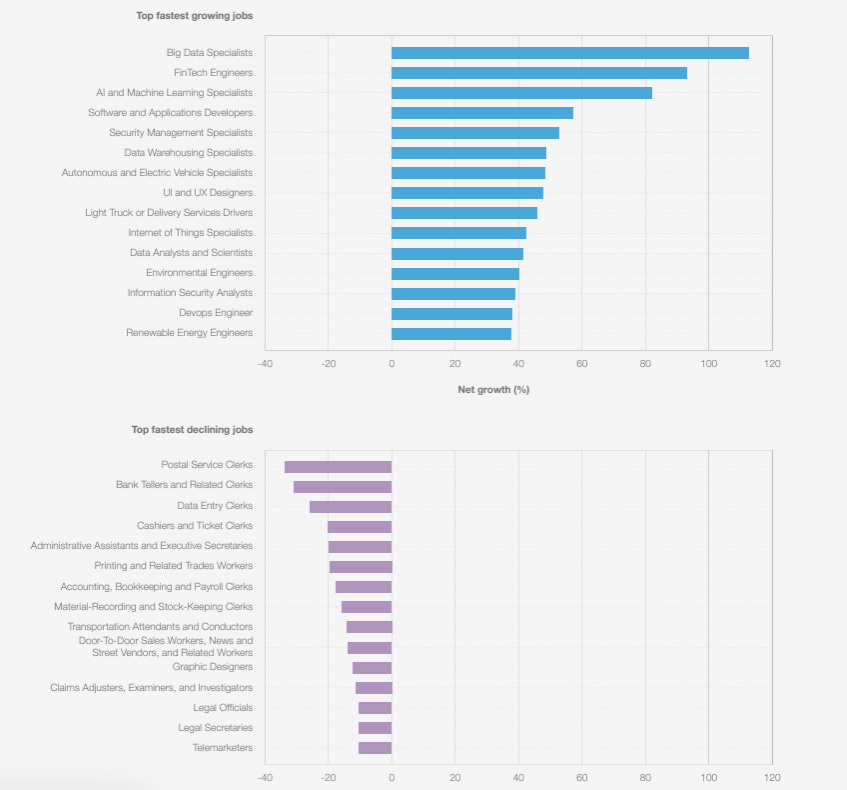
2. Skills Are the New Currency
- The top 10 core skills are complemented by technological literacy, empathy and active listening, curiosity and lifelong learning, talent management, and service orientation and customer service.
- These skills highlight the need for a balance between technical expertise, interpersonal abilities, emotional intelligence, and a commitment to continuous learning to succeed in modern workplaces.
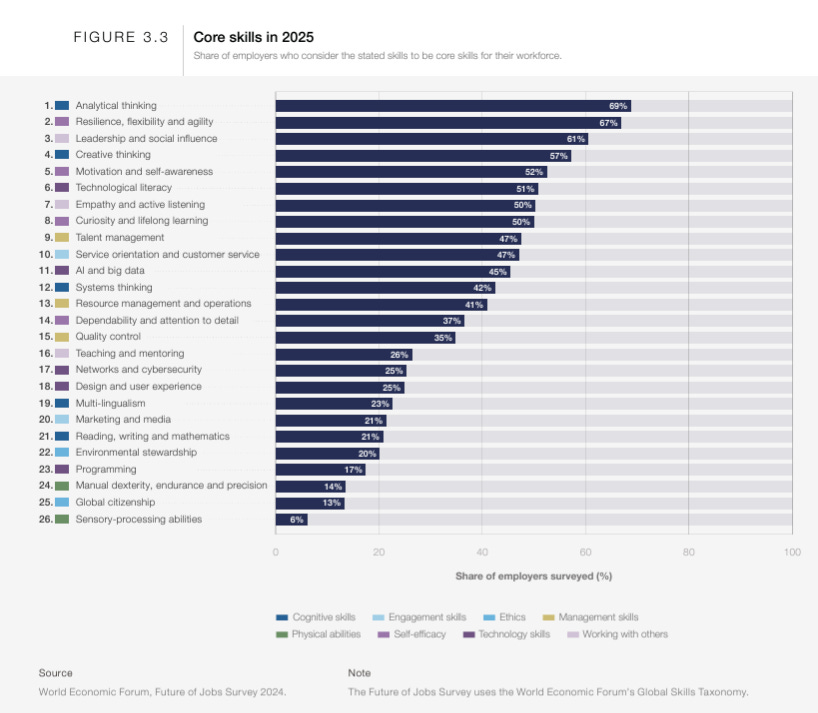
- In addition to technological skills, creative thinking, resilience, flexibility, agility, curiosity, and lifelong learning are growing in importance. Leadership, social influence, talent management, analytical thinking, and environmental stewardship also rank among the top 10 rising skills.
- These emphasize the need for workers who can lead teams, manage talent, and adapt to sustainability and green transitions in a complex, interconnected world.
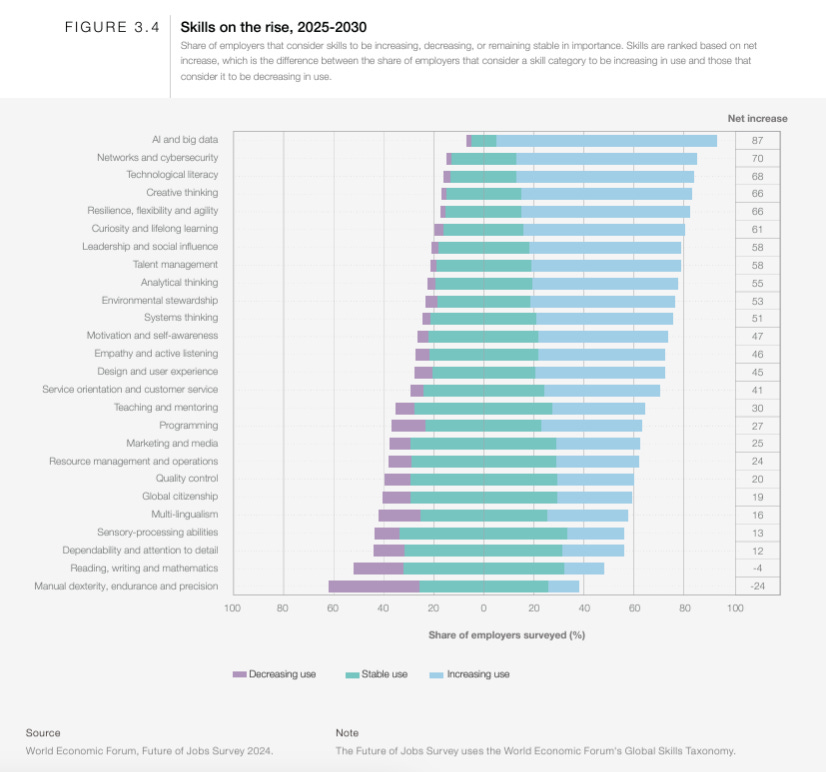
- Skills like AI and big data, analytical thinking, creative thinking, resilience, flexibility, agility, and technological literacy are critical now and expected to grow in importance.
- Human-centric skills such as leadership, social influence, curiosity, lifelong learning, systems thinking, talent management, and self-awareness remain essential, highlighting their relevance in a rapidly advancing technological landscape.
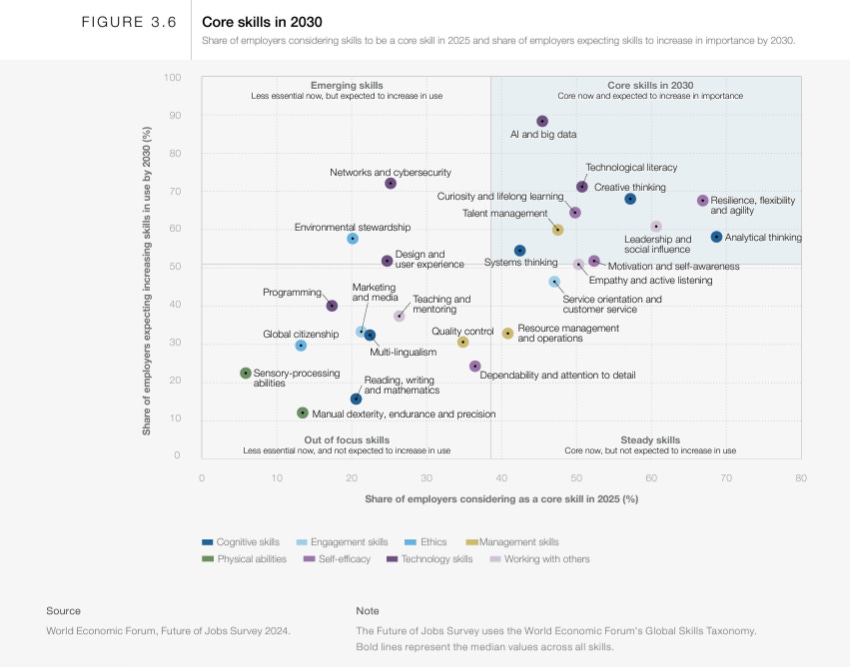
3. Talent Availability Outlook and Workforce Strategy
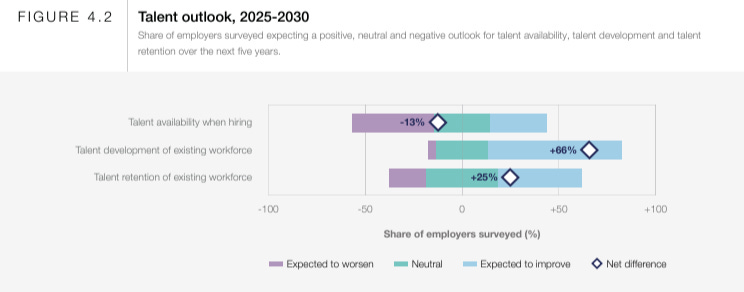
- Employers are generally optimistic about talent development, with seven in ten respondents expecting improvements in their organizations by 2030.
- In light of anticipated AI disruption, reskilling and upskilling the existing workforce to collaborate effectively with AI is the most anticipated strategy for companies in 45 of the 55 economies covered by the report. By 2030, 77% of surveyed employers plan to adopt this approach.
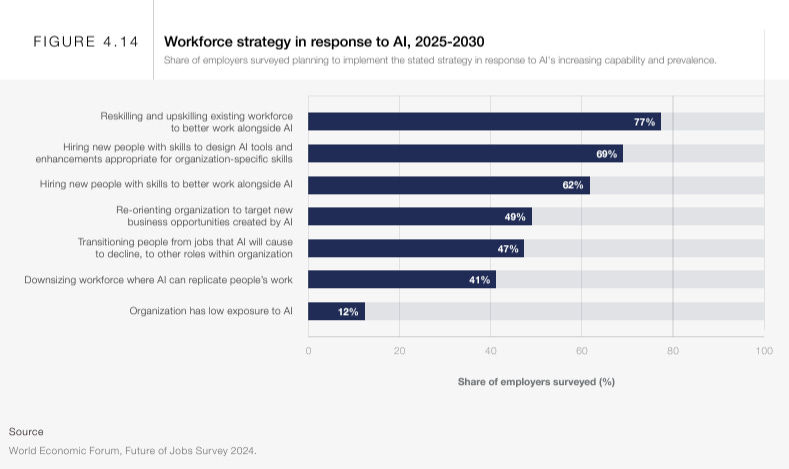
- Supporting employee health and well-being has recently become a top priority for increasing talent availability between 2025 and 2030.
- Other effective practices include offering reskilling and upskilling opportunities, with 63% of organizations highlighting their importance. This is especially true in the Government and Public sector, where four out of five respondents expect these measures to expand their talent pool.
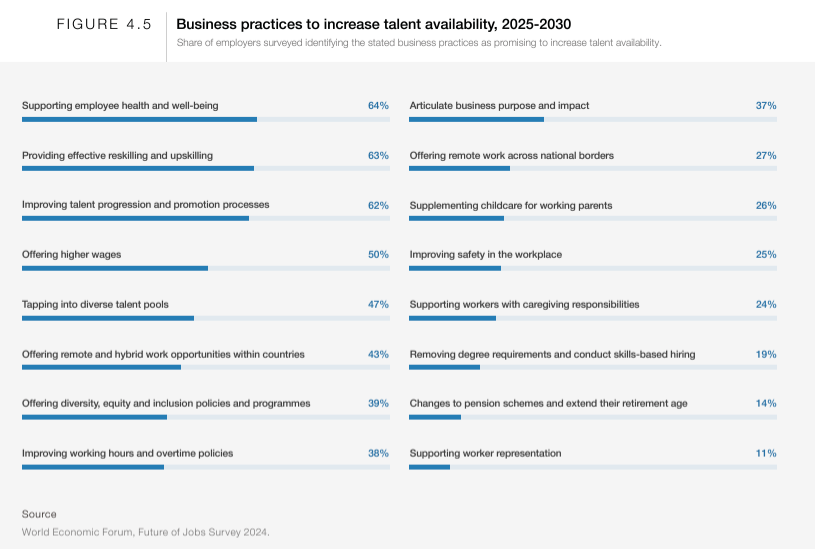
- There is alignment between employees’ reasons to stay and employers’ practices in several areas: improving talent progression and promotion processes (employers rank 3rd, employees rank 2nd), offering higher wages (employers rank 4th, employees rank 3rd), and providing remote or hybrid work opportunities (employers rank 6th, employees rank 4th).
- However, the findings reveal significant misalignment in expectations. Employers view health and well-being support and upskilling/reskilling as essential, but employees rank them lower (8th and 7th, respectively).
- Employees place a higher value on working hours, which they prioritize as the most important policy, while employers rank it 8th in effectiveness for boosting talent availability.
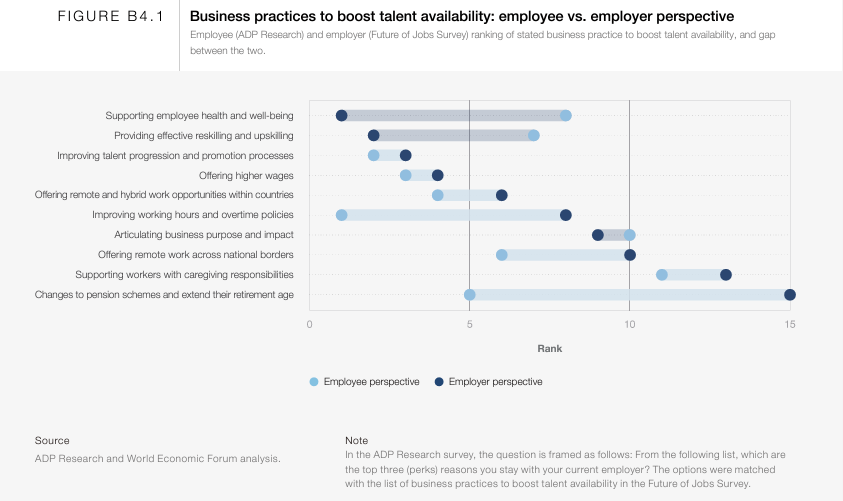
4. Wage Outlook, 2025-2030
- More than half (52%) of employers worldwide expect to increase the share of their revenue allocated to wages from 2025 to 2030. Meanwhile, 41% anticipate that their current wage allocation will remain stable, and 7% expect a reduction by 2030 (Figure 4.10).

5. Skill Assessment Mechanisms
- Eliminating academic degree requirements and focusing on skill-based hiring is becoming a recognized strategy to expand talent availability. As illustrated in Figure 4.12, work experience remains the most common assessment method in hiring, with 81% of businesses planning to continue using it from 2025 to 2030.
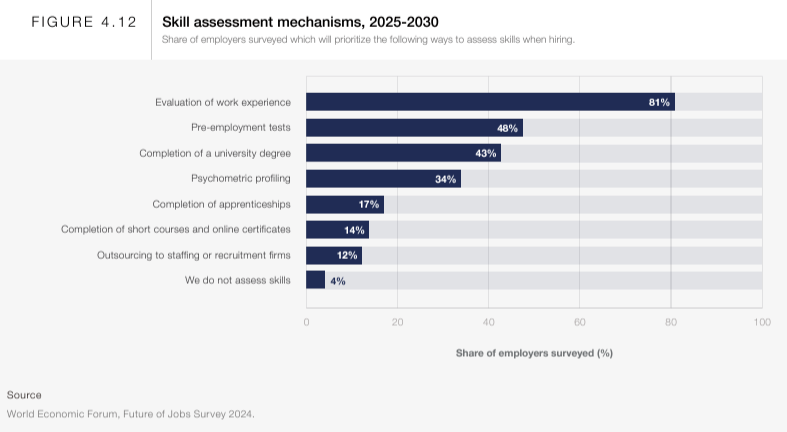
6. South-Eastern Asia
- Advancements in technology, an uncertain economic outlook, and increasing geoeconomic fragmentation are expected to shape labor markets in South-Eastern Asia from 2025 to 2030.
- To address these disruptions and meet emerging business needs, employers in the region are particularly focused on upskilling their workforce (96%, compared to 85% globally) and hiring staff with new skills (86%, compared to 70% globally).
- Finding skilled talent remains a major barrier to business transformation, especially in Singapore and Vietnam, where employers are calling for policy reforms to expand the talent base.
- In Singapore, 64% of employers expect their business to be affected by geoeconomic fragmentation, which is twice the global average. Notably, 97% of companies plan to prioritize upskilling as their main workforce strategy, significantly higher than global levels.
- Although a skills-first approach is seen as a way to expand Singapore’s talent pool, 58% of employers still prioritize university degrees in hiring decisions, exceeding the global average of 43%.
Conclusions
The Future of Jobs Report highlights global workforce transformation driven by factors like AI adoption, geopolitical shifts, and rising costs. While challenges persist, including skills gaps and uncertainty, the report presents a positive employment outlook, supported by reskilling and upskilling efforts. Employers are increasingly adopting innovative strategies like skills-based hiring and focusing on diversity and inclusion.
The report calls for proactive, collaborative action to manage disruptions and shape a better future of work, emphasizing the importance of leadership decisions today. Initiatives like the Reskilling Revolution and The Jobs Initiative aim to build an inclusive, future-ready workforce.
For a comprehensive understanding, refer to the full report here: https://www.weforum.org/publications/the-future-of-jobs-report-2025/in-full/